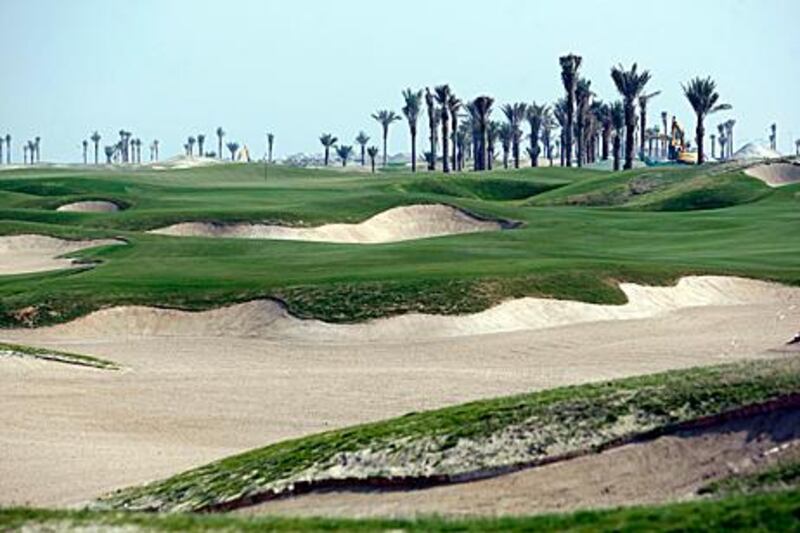Criticism in these pages of the embarrassing Emirati underachievement in the recent world amateur team championship (the Eisenhower Trophy) went down badly with those who put time and effort into looking after the national team.
Saeed Albudoor, the general manager of the Emirates Golf Federation, and Chris Vallender, a frustrated coach of the team who slumped to 58th place in the 69-nation competition, today have to deal with another stinging rebuke - this time from a fellow administrator of golf in this country.
Mohamed Juma Buamaim, the vice-chairman and chief executive of Golf in Dubai, organisers of this week's Omega Dubai Ladies Masters and February's European Tour showpiece, the Dubai Desert Classic, went even further in his condemnation, describing results on the international stage as "a joke".
He has travelled around the world with up-and-coming local players and been humbled by the experience forcing him to come to the blunt but honest conclusion that drastic changes to the structure of the local game are urgently required.
He said: "I look at our guys and see guys from other countries and I say to myself 'I'm sorry but we are really out of our depth here'. We are doing things wrongly and we simply have got to do something to put it right."
So Buamaim is setting out to give aspiring Emirati professionals and those from the host of other nationalities who play the game in the Gulf Region, a platform from which to take the first step towards the paid ranks.
He and his counterparts in the golf federation that works under the title of Middle East and North Africa (Mena) are determined to launch a feeder tour to the world's three main tours - the PGA, European and Asian - either next year or in 2012.
Insisting that he would not be prepared to discuss details of such a project if it were not going to come to fruition, he maintained that it is more than 95 per cent likely to go ahead and would benefit massively a vast range of golfers of various abilities.
Aimed primarily at nurturing the talents of Arab players, the proposed Middle East Tour would also cater for expatriate players at amateur and professional level and could even provide a vehicle for existing main tour players to qualify for events which their world rankings excludes them from.
That option would come into being if the Middle East Tour could offer qualifying places into the European Tour's Desert Swing events to those who win or finish on the podium at key Middle East Tour competitions.
Boumaim is in a position to make that pledge on behalf of the Desert Classic and he said he "felt sure" that his counterparts in Abu Dhabi would be equally accommodating.
All of which makes the plan for a Middle East Tour a winner from all angles and a catalyst to bring to an end the disturbing era of local players perennially occupying the role of losers on the international stage.





